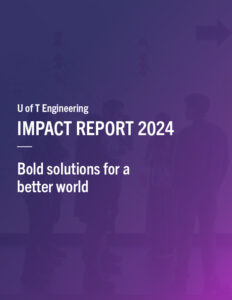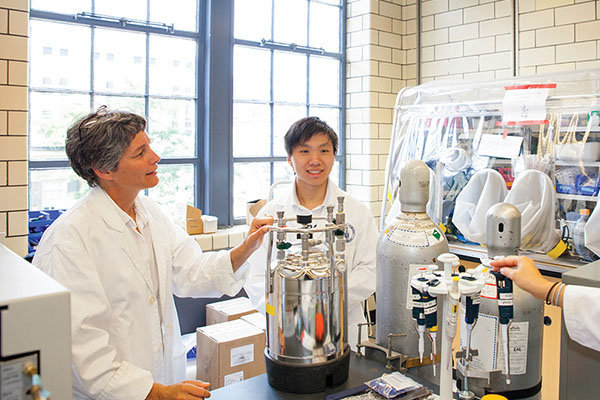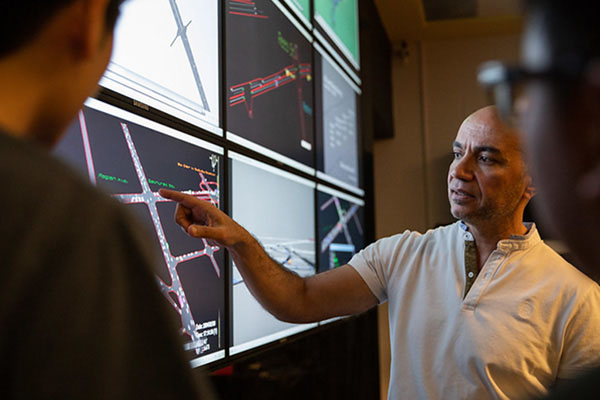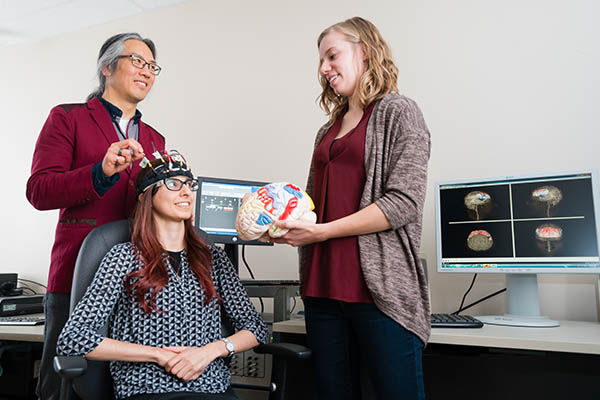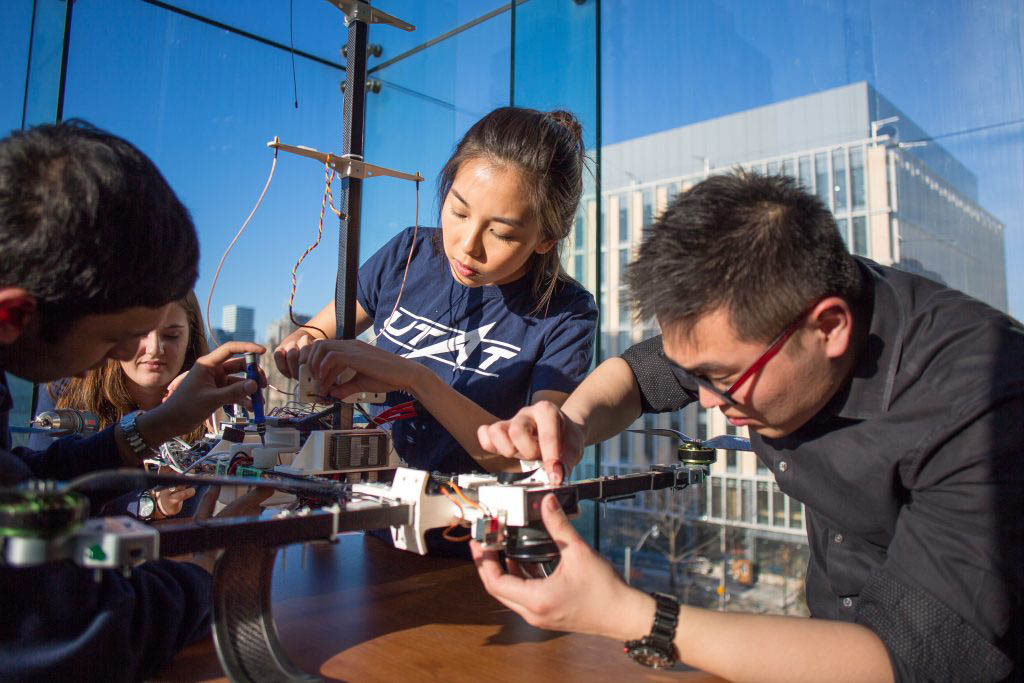Abstract
Microfluidics exploits fluids and their physical and chemical properties at the microscale, enabling miniaturized platforms that offer lower cost, faster pace, higher performance, and increased portability than their macroscale counterparts. This talk will briefly discuss three research themes including droplet microfluidics, microwave sensing and soft robotic wearable systems.
Two-phase droplet microfluidics employs monodispersed water-oil emulsions as mobilized test tubes to perform high throughput analysis (HTA). Despite numerous novel technologies reported, the adoption of droplet microfluidics as an HTA tool by non-microfluidics experts has not been seen. Modular-based droplet microfluidics, enabling easy assembly of application-specific systems, presents tremendous potential to break this barrier. This talk will introduce our work towards this goal including, a suite of physical models that can serve as design tools for passive-based droplet modules such as droplet generators, mergers, sorters and heaters, and a unique active droplet microfluidics method that relies on visual feedback of droplet position to actuate a pressure source to actively control individual droplets realizing functional modules.
Simultaneous sensing and heating of individual droplets are critical but very challenging. Microwave resonators present tremendous potential to meet this need which will be the second part of this talk. Microwave sensing finds various applications beyond droplet microfluidics. Its applications for the detection of virus such as SARS-CoV-2 and E. coli as well as metal ions will be discussed.
Soft robotic wearable systems offer hope to improve the quality of life for those in need because of their compliance nature. Most existing systems are expensive, power intensive and tethered to external power sources, limiting user mobility. Microfluidics enables miniaturization of the system including its front end (e.g. wearable sleeves) and back end (control unit), translating to low cost, tetherless and energy-efficient operation. This talk will present wearable sleeves for treating lymphedema, arthritis, and pressure ulcers due to the ill fit of prosthetic sockets.
Speaker Bio
Dr. Ren received her PhD in Mechanical Engineering from the University of Toronto and her master’s and bachelor’s degrees in Mechanical Engineering from Harbin Institute of Technology. She is currently a Professor of Mechanical and Mechatronics Engineering at the University of Waterloo (UW) and holds a Tier I Canada Research Chair (CRC) in Microfluidic Technologies. She is directing Waterloo Microfluidics Laboratory focusing on advancing fundamental knowledge of microfluidics and developing technologies that are impactful on a wide range of applications such as life science research, protein fractionation towards drug screening, water quality sensing and assistive technology for well-being. Besides the CRC, Dr. Ren has also received several awards from the engineering and research community, including: election as a Member of Canadian Institute of Engineering in 2024, election as a Member of Canadian Academy of Engineering in 2023, recognition as one of Canada’s 100 Most Powerful Women in 2021, election as a Member of the College of New Scholars, Scientists and Artists of Royal Society of Canada in 2018, being recognized as one of 20 leading female innovators in Women of Innovation (Dr. Ren is a co-founder of four start-up companies) in 2017.


